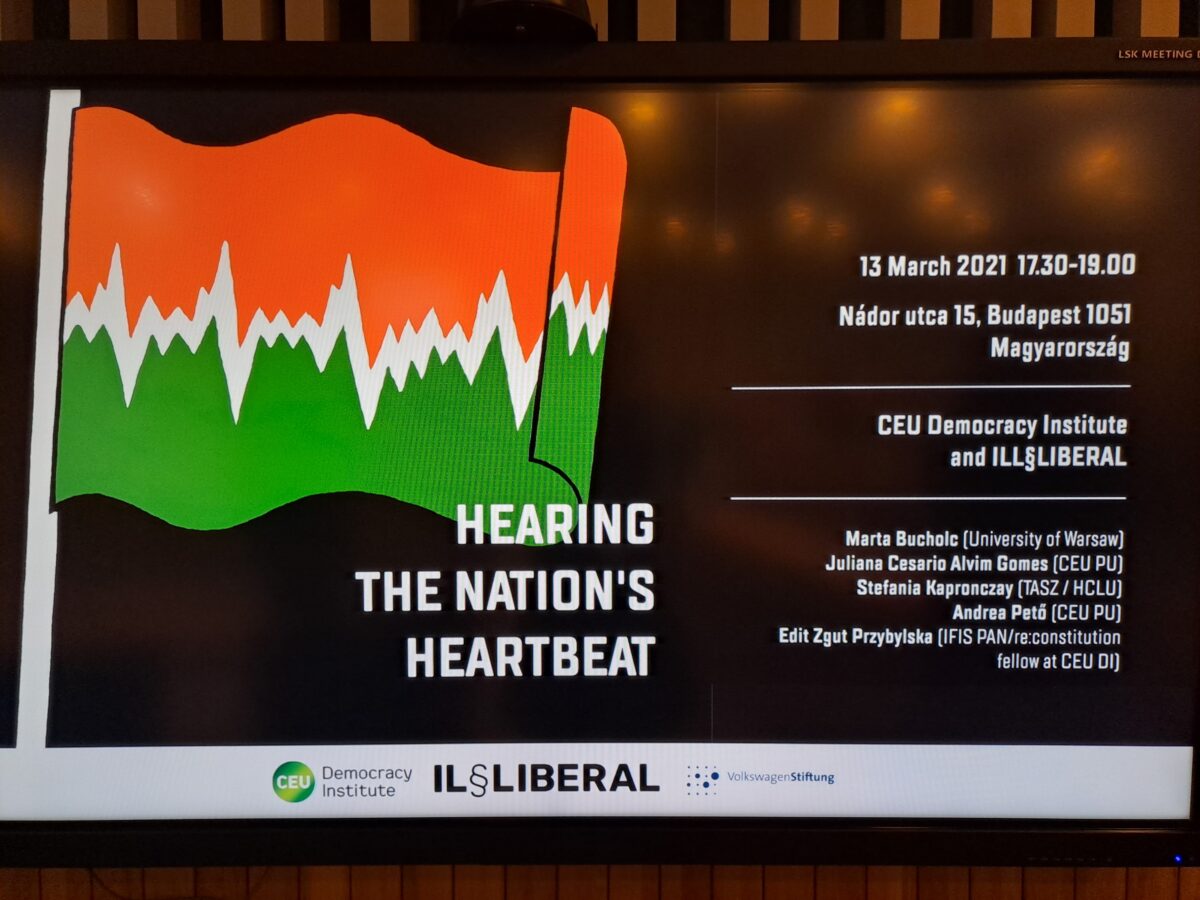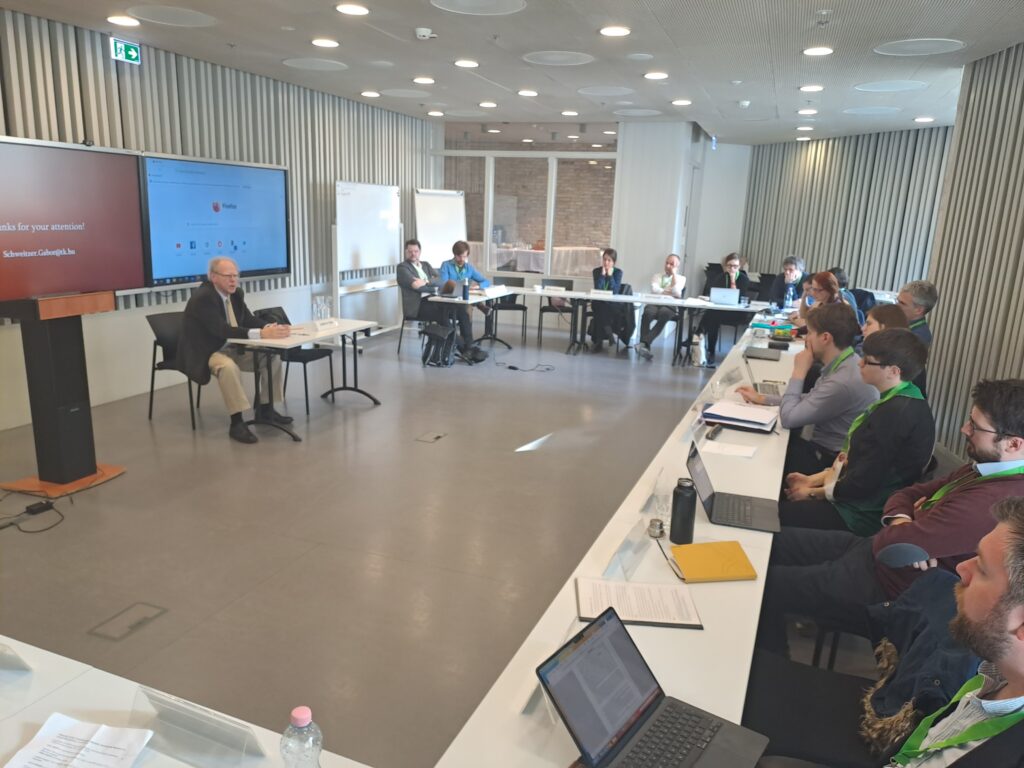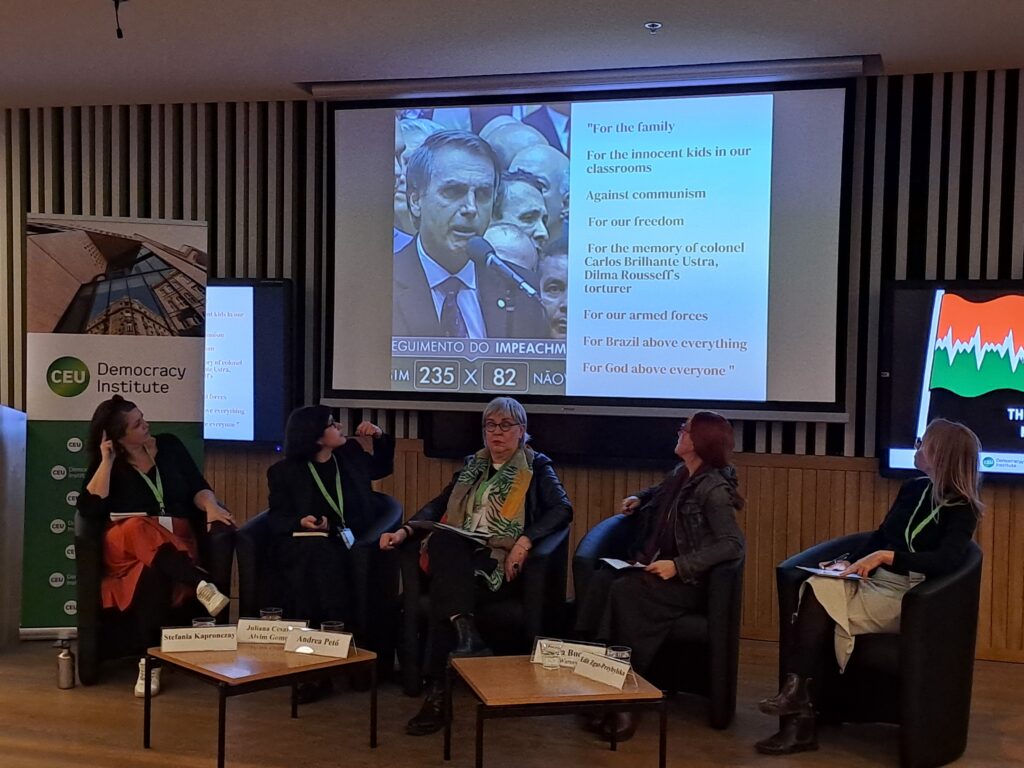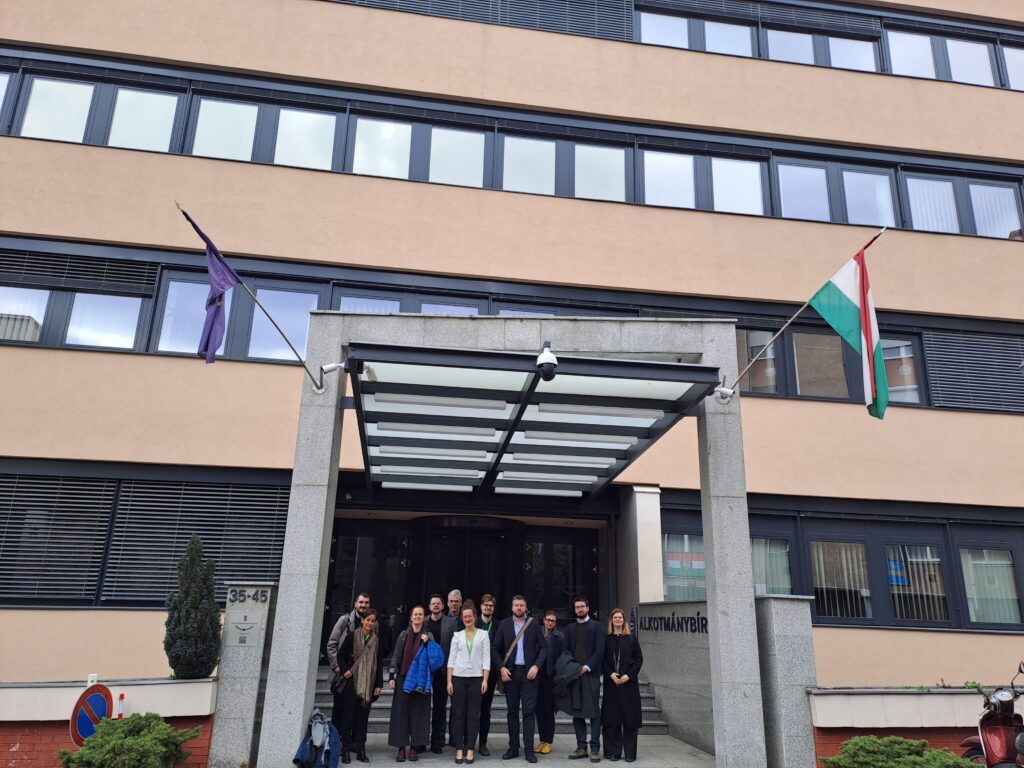
Gleaning: Workshop and Expert Forum in Budapest
15/03/2023
The Budapest-Workshop started with a presentation about, and a tour around the “Open Society Archive” (OSA) by Andras Mink.
In the seminar room of the Central European University (CEU), Michal Kopeček introduced the “Towards Illiberal Constitutionalism” project to our visitors. This was followed by Zolt Enyedi’s presentation of his project at CEU called “Neo-authoritarianisms in Europe and the liberal democratic response” (or “AUTHLIB”), in which his team conducts empirical surveys in different countries (as well as some laboratory experiments) in order to provide policy makers with a toolbox to improve support for liberal democracy. Zolt Ciganyik presented a project on “Democracy in East Central European utopianism” in which his group tries to fill the gap between literary and political theoretical utopian texts as these might highlight certain problems with democracy in particular countries. At last, Gabor Schweitzer talked about his research project group that investigates Hungary’s historic constitution.

In the afternoon, we attended a seminar with the former judge at the European Court of Human Rights, Strasbourg (2009-17) and founding dean and Professor of Legal Studies at CEU András Sajó. He engaged in a debate with members of the team on constitutional aspects of the political crisis in Hungary of today.
By the end of the first day, Jakub Szumski presented his project on the Socialist Rechtsstaat and Elite Corruption between 1980 and 1990, and Sophie Lange asked in her presentation, who is a citizen rights activist of the former GDR.
The evening event offered a podium discussion under the title of “Hearing the Nation’s Heartbeat. Reproductive Rights in Illiberal Regimes”. Discussants were Marta Bucholc (University of Warsaw), Andrea Petö (CEU), Juliana C. A. Gomes (Federal University of Minas Gerais), and Stefania Kapronczay (Hungarian Civil Liberties Union); the moderator was Edit Zgut-Przybylska (CEU). In discussing, the central question of “how abortion rights as human rights” were twisted, turned and highjacked for instrumentalization in Poland, Hungary as well as in Latin American Countries, they also explored the possibilities of pushbacks on part of the civil society against these abuses. The event is available on online on Youtube.

The second day started with a talk with the historian of East Central European political and cultural thought at the CEU Balázs Trencsényi about academic reality and bonds in East Central Europe under the condition of the current hungarian government, which withdraws funding and tries an ethnicization of academia. It was followed up by presentations of members of the project: Matěj Slavík presented a book chapter which is to be published in an edited volume and which explores the theoretical concept of “constitutional imaginaries”. Naum Trajanovski presented his progress on his research on the lawyer and professor of legal sciences Stanisław Ehrlich. Finally, Dorjana Bojanovska presented her first thoughts on “Reversed Secularization in Illiberal Democracies”.
In the afternoon, the participants of the workshop got some insights from Hungarian human rights activists: Aron Demeter for Amnesty International Hungary, Eszter Polgari of the Hatter Society representing LGBTQIA+ people, Andras Kadar from the Hungarian Helsinki Committee, and Miklos Ligeti from Transparency International.
The last event had been a tour to the other side of the Danube to the Constitutional Court of Hungary. Members of the team met Justice of the Constitutional Court, Balazs Schanda, who emphasized achievements of Hungary’s historic constitution in his talk.

The workshop ended for most participants on March, 15th – the national holiday of Hungary that commemorates the Revolution of 1848 and symbolizes today national independence and democracy.